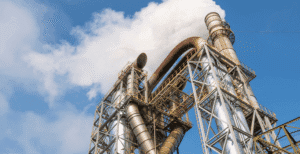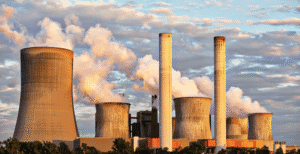What Are Dust Filters?
Dust filters are devices that remove dust and other small particles from the air or gas. They help keep the air clean by stopping dirt and dust from spreading. Many industries use dust filters to make sure the air quality is good.
In factories, dust filters catch harmful particles that machines may produce. This helps protect workers and the environment. In homes, dust filters in air conditioning systems help keep the air fresh and clean. Hospitals also use dust filters to protect patients from germs and pollutants.
Overall, dust filters play an important role in keeping air clean and safe in various places. They help prevent contamination and improve the quality of the air people breathe.
Types of Dust Filters
Dust filters come in various types, each suited to specific applications. They help keep air clean by removing dust and other particles. Here are some common types of dust filters:
- The first type is a HEPA filter. HEPA stands for High Efficiency Particulate Air. These filters can trap very small particles. They are often used in places like hospitals and clean rooms. HEPA filters are good for people with allergies.
- Another type is the electrostatic filter. This filter uses static electricity to attract dust particles. Electrostatic filters are often found in homes and offices. They help improve indoor air quality.
- ال مرشح كيس is also common. This filter uses a fabric bag to capture dust. It is often used in industrial settings, like factories. Bag filters are good for collecting large amounts of dust.
- The next type is the panel filter. Panel filters are flat and fit in a frame. They are used in HVAC systems to keep air clean. These filters need to be replaced regularly.
- Lastly, there is the carbon filter. Carbon filters use activated carbon to remove odors and gases. They are often used in air purifiers and kitchen hoods. Carbon filters help make the air smell fresh.
Each type of dust filter plays an important role in keeping the air clean and safe.
Applications of Dust Filters
Dust filters are crucial in various industries. They help to keep the air clean and remove harmful particles. Here are some industries that use dust filters and how they apply them:
- تصنيع: Dust filters capture dust and debris from machines. This keeps the air safe for workers and protects equipment from damage.
- بناء: Dust filters are used on construction sites. They reduce dust from cutting and grinding materials, making the site safer for everyone.
- معالجة الأغذية: In food factories, dust filters keep the air clean. This prevents contamination and ensures food safety.
- المستحضرات الصيدلانية: Dust filters are essential in making medicines. They help maintain a sterile environment by removing particles that could affect drug quality.
- التعدين: Dust filters control dust in mines. This protects workers’ lungs and improves visibility on site.
- نجارة: Dust filters collect sawdust and wood particles. This keeps the workspace tidy and reduces fire risks.
- توليد الطاقة: In power plants, dust filters clean the air from emissions. This helps meet environmental standards and protects public health.
Dust filters play a key role in these industries by improving air quality and protecting both people and equipment.
Benefits of Using Dust Filters
Using dust filters offers several advantages. Dust filters help keep the air clean and healthy. Here are some benefits of using dust filters:
- Dust filters trap tiny particles. This helps reduce dust in the air.
- They improve air quality. Clean air makes breathing easier and healthier.
- Dust filters can help with allergies. They reduce allergens like pollen and pet dander.
- They protect equipment. Dust can damage machines and electronics. Filters keep them safe.
- Dust filters can save money. Clean air systems use less energy, which lowers bills.
- They create a comfortable environment. Less dust means less cleaning and a nicer space to live in.
- Dust filters can extend the life of HVAC systems. They keep systems running smoothly and prevent breakdowns.
Using dust filters is a smart choice for homes and businesses. They provide clear benefits for health and comfort.
Choosing the Right Dust Filter
Choosing the right dust filter is important for keeping the air clean. Many factors help in making this choice. These factors include particle size, airflow requirements, and environmental conditions. Here is a simple guide to help in selecting the right filter.
- Know the Particle Size: First, check the size of the dust particles you want to filter. Smaller particles need filters with a higher rating. Look for filters that can catch the specific sizes of dust.
- Check Airflow Requirements: Next, consider how much air needs to flow through the filter. Some filters restrict airflow. Ensure the filter fits your machine without blocking too much air.
- Look at Environmental Conditions: Think about where the filter will be used. If it is in a very dirty place, choose a stronger filter. If it is in a cleaner area, a regular filter might work.
- نوع الفلتر: Decide on the type of filter. There are different kinds such as HEPA filters, which catch tiny particles, and electrostatic filters, which attract dust using electricity.
- احتياجات الصيانة: Consider how often the filter needs cleaning or replacing. Some filters require more care than others. Pick one that matches your ability to keep it clean.
- ميزانية: Finally, look at the cost. Filters come in different price ranges. Make sure to find one that fits your budget while still doing a good job.
By following these steps, anyone can choose the right dust filter for their needs.
Maintenance and Replacement of Dust Filters
Maintenance and replacement of dust filters are important for the best performance of machines that use them. Dust filters help keep air clean and ensure devices run smoothly. Regular checks can help users know when to clean or change the filters.
To maintain dust filters, users should first clean them regularly. This means removing dust and dirt to keep the filters working well. Users can do this by washing or vacuuming the filters, depending on the type. They should also check for any tears or damage. If the filter looks worn out, it may need replacement.
Signs indicating the need for replacement include a decrease in airflow. If users notice that the machine is not working as well as before, it could mean the filter is clogged. Another sign is unusual noises coming from the machine. These can show that the dust filter is not working correctly. If users see any of these signs, it is time to replace the dust filter. Replacing filters on time keeps machines running efficiently.
Innovations in Dust Filter Technology
Innovations in dust filter technology have changed how industries manage air quality. Advances in materials and design make dust filters work better and last longer. These changes help in many fields, including manufacturing, construction, and healthcare.
New materials like nanofibers are very strong and can catch tiny dust particles. This means cleaner air for workers and safer environments. In manufacturing, better dust filters keep machines running smoothly. They reduce wear and tear by removing harmful particles.
In the construction industry, improved dust filters help control dust during projects. This keeps job sites safer for workers and nearby communities. Healthcare facilities benefit too. Strong dust filters help keep patients safe from harmful particles in the air.
Overall, these innovations in dust filter technology make a big difference. They improve air quality and protect people in many industries.
Case Study: Effective Dust Filtration in the Pharmaceutical Industry
Dust filters play a crucial role in maintaining air quality in the pharmaceutical industry. A case study shows how one pharmaceutical company improved its air quality using effective dust filtration. The company noticed that dust particles affected its production process and product quality.
The company decided to install high-efficiency dust filters in its manufacturing areas. These filters captured small dust particles that could harm the products. Before the filters were installed, air quality tests showed high levels of dust in the manufacturing area. The company recorded dust levels at 150 micrograms per cubic meter.
After installing the dust filters, the company conducted another air quality test. This time, the dust levels dropped to 30 micrograms per cubic meter. The filters removed 80% of the dust from the air. This improvement helped the company meet strict health and safety regulations.
The company also saw better product quality after the installation. Fewer dust particles led to fewer defects in the products. The production team reported a 25% decrease in product returns due to quality issues. This change saved the company money and improved its reputation.
The case study shows that effective dust filtration is vital in the pharmaceutical industry. It helps maintain a clean environment, protects products, and boosts overall efficiency.
Environmental Impact of Dust Filters
Dust filters play a big role in the environmental impact. Proper dust filtration helps reduce airborne pollutants. This is important for keeping the air clean and healthy for everyone.
When dust filters work well, they catch harmful particles before they can spread in the air. This means fewer pollutants enter the atmosphere. Clean air leads to a healthier environment for people, animals, and plants.
Using dust filters also helps reduce health problems. People who breathe cleaner air are less likely to have issues like asthma or allergies. This is especially important in cities where air quality can be poor. Another benefit of dust filters is that they can save energy. When air systems work efficiently, they use less energy. This can lead to a decrease in carbon emissions, which is good for the planet.
Overall, dust filters contribute to a cleaner environment. They help keep air safe to breathe and support health for everyone.
خاتمة
Dust filters are vital for maintaining air quality. They help protect health and ensure equipment lasts longer in many industries. Dust filters remove harmful particles from the air. This makes workplaces safer and cleaner for everyone.
Maintaining good air quality is important for health. When dust and other particles are in the air, people can get sick. Dust filters reduce these risks. This is especially important in places like factories and hospitals.
Using dust filters also helps equipment. Dust can damage machines and cause them to break down. By filtering out dust, these filters can help machines run better and last longer. This saves money on repairs and replacements.


